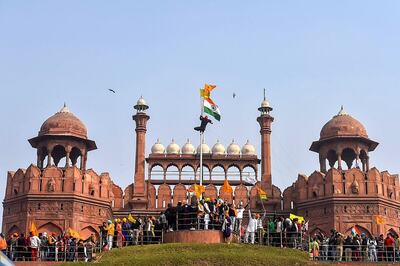
views
The year 2023 marks the 50th year of Project Tiger, the largest and most ambitious conservation project in our history. To mark this achievement, two wildlife photographers and filmmakers from Bengaluru, Rohit Varma and Kalyan Varma, co-founders of the forum Nature In Focus, have made a film “Project Tiger”, which premiered recently in the city.
“Project Tiger”, a 1.5-hour documentary, looks at the tiger from various perspectives. It traces the history of tiger populations in our country, the connect between tigers and humans, tiger representations in popular culture, how the erstwhile Maharajas and the British turned India into their tiger hunting grounds, and the horrifying crash of tiger populations in India to the point of extinction, till in 1973, Project Tiger was launched under the leadership of the then Prime Minister Indira Gandhi.


With telling (sometimes horrifying) visuals, and an interesting layered narrative, the film then follows Project Tiger, its ups and downs, delves into the challenges of poaching and wildlife crime, driven by the demand for tiger parts in Chinese medicine, man-animal conflict, how conservation evolved, how technology changed the trajectory of conservation science, why the project worked and why it failed at some levels, tracking it down to the present day, and looking at the kind of hope it holds for the future.
Kalyan Varma, says that 50 years of a successful project itself was a big trigger to work on a film and showcase to the world what India did to save a global icon like the tiger. “We also wanted to showcase how saving tigers helped in saving a larger ecosystem, our rivers, and us,” says Kalyan. The film was conceptualised by Vijay Mohan Raj, APCCF, Karnataka Forest Department. It took the Varma duo almost six months to research and build their script.
The film also looks at some of the criticisms the project faced, and some of its failures. Rohit Varma elaborates that no project can be linear and an outright success. “Yes, mistakes happened, but our government acknowledged them and also did course correction. I am referring to the Sariska and Panna incidents.”
Between 2004 and 2005, all the tigers in Rajasthan’s Sariska Reserve were wiped out. Then, there was a shocking repeat in Madhya Pradesh’s Panna Tiger Reserve in 2009. These were major wake-up calls for the country’s change in conservation strategy. Rohit points out that the method of conducting the tiger census was also eventually made more scientific. From depending on pugmarks, camera traps were introduced for tiger population monitoring.
The film features multiple narrators including conservationists and environmental activists such as Valmik Thapar, Ullas Karanth, Bittu Sahgal, Belinda Wright, and environmental historian Mahesh Rangarajan, apart from others. “We wanted voices that represent and narrate specific parts of the story as they have seen and experienced things first-hand. Nobody knows better than them,” says Kalyan.
Kalyan points out that for a project of this scale to succeed, the role of researchers, scientists, and biologists was equally important, as well as the love the people of the country have for tigers. “Tourism also helped. When people visit Tiger Reserves and National Parks, they fall in love with nature, and start thinking about conservation.”
Looking at the future, Rohit believes that what the country needs is more wildlife corridors, where tigers and other animals should be able to move freely from one park to another. “We need to look at more planned and scientific development. NH-44 is a great example, where research helped make passages for animal movement, reducing road kills.”
The film will be screened in multiple Indian cities soon, as well as travel to film festivals in India and abroad.




















Comments
0 comment